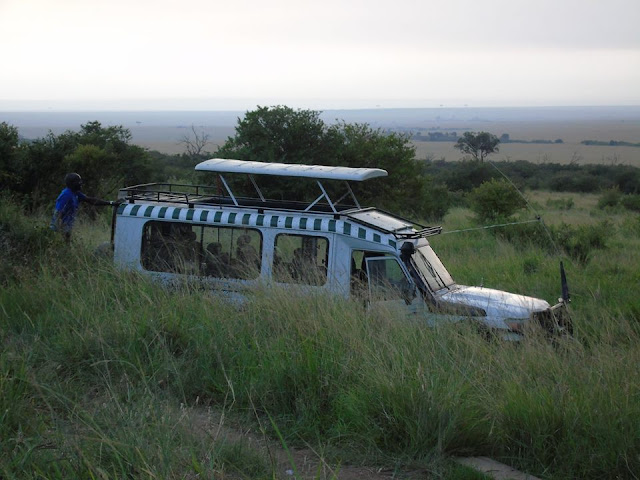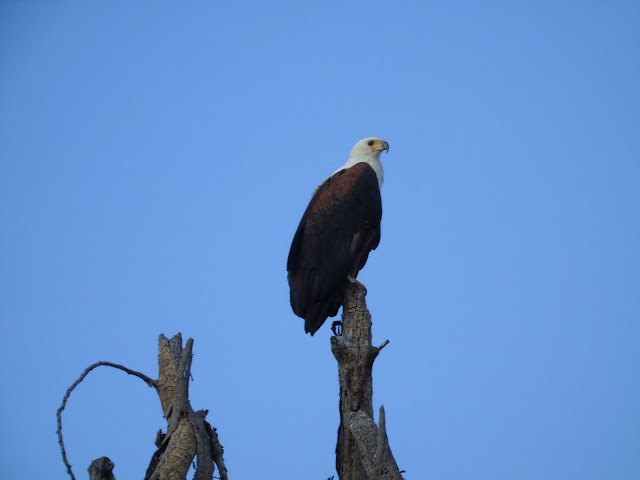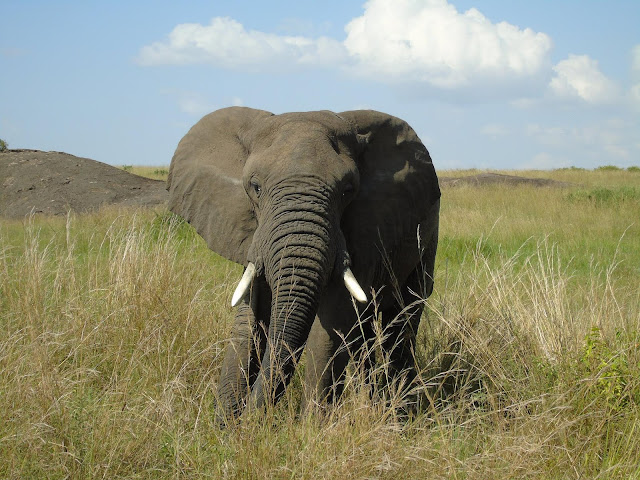Surviving Safari
We were lucky enough to visit Kenya last year and go on an INSANE safari. It got us thinking- safari is so different to other types of holiday, what do you need to know before you go?
1. LUGGAGE
You, your companions and all of your luggage are going to be crammed into your chosen safari vehicle for hours at a time, along bumpy roads (where your head will occasionally hit the vehicle roof!). Pack light. Pack compact. Pack in a rucksack.
2. CLOTHING
Most lodges will have laundry facilities so pack light and leave plenty of room for souvenirs.
Don’t forget your sunglasses, sun cream, long sleeved shirt, fleece/ jacket (early morning safari can be bitterly cold) and sturdy shoes. Our vehicle got wedged in a ditch and we had to evacuate- it was not a situation for flip flops, although some valiantly ploughed on.
Be discreet. Wild animals are going to notice you wearing lime green cat suit. So is everybody else.
You do not need to be dressed head to toe in green ( be careful of camo clothing as its banned in some African countries!) and it risks you looking a bit of a wally.
Neutral colours and light fabrics are ideal.
 |
| Hyenas will notice what you're wearing but they just won't care |
3. TSETSE FLIES
Speaking of colour clothing, this leads us nicely onto the most terrifying thing you are likely to encounter on safari- the dreaded tsetse fly. Avoid dark/black clothing unless you want to attract these little blighters too you. They can bite through clothes and it hurts like a son of a gun!
4. RESEARCH
There is so much for you to consider before you set out: what company will you travel with? What sort of safari vehicle do you prefer (SPOILER ALERT: there is a HUGE difference in what different operators will offer you, so buyer beware!)? What impact does your safari have on the environment? Do you want to meet any of the local tribes?
Safari is likely to be a large chunk of your hard earned cash. Make sure it's going to a company whose ethos you support, and preferably where the money gets filtered back into the local community.
 |
| Lake Navaisha on a locally run lake safari |
5. JABS
Get on the phone to your doctor, get the list of your innoculations, and go to the local travel clinic. You do not want Yellow Fever or malaria. Get your jabs.
You might want a personal First Aid kit- plasters, pain killers and antidiarrheal medication. Whatever you do, take the antidiarrheal medication. Don’t ask. Please just trust me.
6. TIPPING
Your safari guides, and all the other staff involved in your trip, are going to make this a once in a lifetime experience for you. Tipping is a usual practice on safari but of course it isn’t compulsory.
There are many schools of thought on how much is the right amount. Ultimately it's up to you- how much did you enjoy the trip and how much do you want to thank your guide. As a rough guide, consensus seems to be around the $5 – 10 a day mark.
Our guide got us wedged in a ditch trying to find a leopard for us. The man deserved a handsome tip.
 |
| The second time we got wedged in a ditch |







These are great tips, thanks. I hadn't considered giving careful thought to the tour company to use. I think it's so important to find a reputable company that reinvests locally to make sure that the communities are well supported.
ReplyDeleteHi Louise
DeleteThanks for reading, I'm glad that you found it helpful.